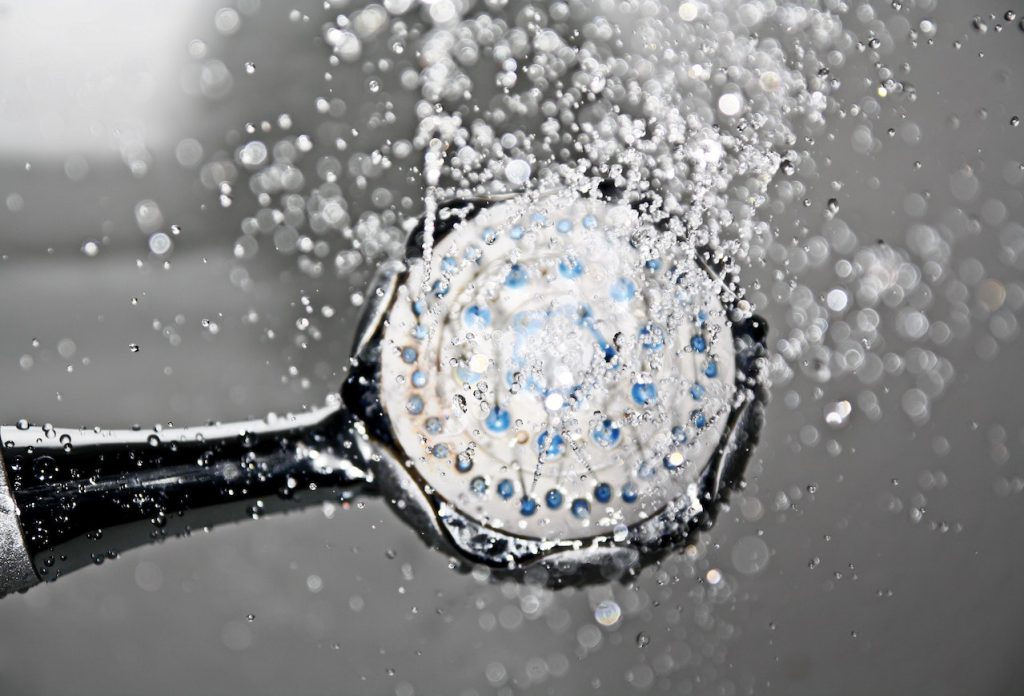In the quest for more sustainable living, homeowners and builders are increasingly turning to eco-friendly technologies. One such innovation that has garnered significant attention is the tankless water heater. Unlike traditional water heaters that store and continually heat a large volume of water, tankless systems heat water on demand, providing a more energy-efficient solution. This essay will delve into the various aspects of tankless water heaters, including their operational mechanism, environmental benefits, cost efficiency, installation considerations, and potential drawbacks. Through a comprehensive examination, we aim to elucidate why tankless water heaters are becoming the preferred choice for modern homes.
Table of Contents
ToggleUnderstanding Tankless Water Heaters
Operational Mechanism
Tankless water heaters, also known as on-demand or instantaneous water heaters, function by heating water only when it is needed. When a hot water tap is turned on, cold water travels through a pipe into the unit. An electric element or gas burner heats the water as it passes through, delivering a constant supply of hot water. This process eliminates the need for a storage tank, which is a hallmark of conventional water heaters.
Types Of Tankless Water Heaters
There are two main types of tankless water heaters: electric and gas-fired. Electric tankless water heaters are typically smaller and easier to install but may require significant electrical capacity. Gas-fired models, while often more powerful, necessitate proper venting to expel combustion gasses.
Environmental Benefits
Energy Efficiency
Tankless water heaters are renowned for their energy efficiency. Traditional water heaters continuously heat water to maintain a set temperature, leading to what is known as standby heat loss. In contrast, tankless units eliminate this issue by heating water only when necessary. According to the U.S. Department of Energy, homes that use 41 gallons or less of hot water daily can achieve energy savings of 24-34% with tankless water heaters compared to conventional storage tank water heaters.
Reduced Carbon Footprint
The energy efficiency of tankless water heaters directly translates to a reduced carbon footprint. By consuming less energy, these units decrease the reliance on fossil fuels, leading to fewer greenhouse gas emissions. For environmentally conscious homeowners, this benefit aligns well with broader sustainability goals.
Longevity And Reduced Waste
Tankless water heaters typically have a longer lifespan than traditional models, often lasting over 20 years compared to the 10-15 years expected of storage tank heaters. This longevity means fewer units end up in landfills, contributing to waste reduction and promoting a more sustainable product lifecycle.
Cost Efficiency
Initial Investment And Long-Term Savings
The initial cost of a tankless water heater is generally higher than that of a conventional water heater. However, the long-term savings in energy bills often offset this initial investment. Homeowners can expect to save on their utility bills due to the reduced energy consumption of tankless units.
Maintenance Costs
While tankless water heaters require less maintenance than their traditional counterparts, they are not maintenance-free. Regular descaling and cleaning are necessary to prevent mineral buildup, especially in areas with hard water. Nonetheless, the lower risk of leaks and reduced need for frequent replacements contribute to lower overall maintenance costs.
Incentives And Rebates
Many governments and utility companies offer incentives and rebates to encourage the adoption of energy-efficient technologies, including tankless water heaters. These financial incentives can further reduce the upfront costs and make the transition to a tankless system more affordable.
Installation Considerations
Space And Location
One of the advantages of tankless water heaters is their compact size, which allows for more flexible installation options. They can be installed in smaller spaces and even mounted on walls, freeing up valuable floor space. However, proper planning is essential to ensure that the unit is placed in a location that can accommodate the necessary plumbing and electrical or gas connections.
Retrofitting Existing Homes
Installing a tankless water heater in an existing home may require modifications to the plumbing and electrical systems. For gas-fired units, venting requirements must also be addressed. While these modifications can add to the installation cost, they are typically manageable and can be planned to minimize disruption to the household.
New Construction
For new construction projects, integrating a tankless water heater can be more straightforward. Builders can design the plumbing and electrical systems to accommodate the tankless unit from the outset, potentially reducing installation costs and ensuring optimal performance.
Potential Drawbacks
Upfront Costs
As previously mentioned, the initial cost of purchasing and installing a tankless water heater is higher than that of a traditional storage tank heater. This higher upfront investment can be a barrier for some homeowners, although the long-term savings often justify the expense.
Flow Rate Limitations
Tankless water heaters can struggle to provide adequate hot water flow for multiple simultaneous uses. For example, running a shower and a dishwasher at the same time may exceed the unit’s capacity, resulting in a drop in water temperature. To mitigate this issue, homeowners may need to install multiple units or opt for a larger model with a higher flow rate.
Electrical Requirements
Electric tankless water heaters require a significant electrical load, which may necessitate upgrades to the home’s electrical system. This can add to the installation cost and complexity. It is crucial to assess the home’s electrical capacity before opting for an electric model.
Comparing Tankless And Traditional Water Heaters
Energy Consumption
Traditional water heaters consume more energy due to standby heat loss, as they continually heat and reheat the water in the tank. Tankless water heaters, by heating water only when needed, offer a more efficient alternative. This difference in energy consumption is one of the primary factors driving the adoption of tankless systems.
Space Efficiency
The compact size of tankless water heaters is a significant advantage over traditional storage tank models. In homes with limited space, the ability to install a tankless unit on a wall or in a small utility closet can free up valuable floor space for other uses.
Hot Water Availability
Traditional water heaters can provide a large volume of hot water simultaneously but may run out if the demand exceeds the tank’s capacity. Tankless water heaters, while offering continuous hot water, may face limitations in flow rate, particularly in larger households with high hot water demand.
Case Studies And Real-World Examples
Residential Applications
Many homeowners have successfully transitioned to tankless water heaters, citing benefits such as lower energy bills, consistent hot water supply, and compact design. For example, a family in Texas reported saving over $100 annually on their energy bills after switching to a gas-fired tankless unit. The reduced space requirements also allowed them to repurpose their utility room for additional storage.
Commercial Applications
Tankless water heaters are also gaining traction in commercial settings. Restaurants, hotels, and office buildings can benefit from the continuous hot water supply and energy savings. A hotel in California installed several tankless units to meet the high hot water demand of its guests, resulting in significant energy cost reductions and positive feedback from customers.
Environmental Impact Studies
Environmental studies have highlighted the positive impact of tankless water heaters on reducing carbon emissions. A study conducted by the Natural Resources Defense Council (NRDC) found that widespread adoption of tankless water heaters could significantly reduce greenhouse gas emissions, contributing to climate change mitigation efforts.
Future Trends And Innovations
Technological Advancements
The tankless water heater industry is continually evolving, with new technologies aimed at improving efficiency and user experience. Innovations such as smart controls, advanced sensors, and improved heat exchangers are enhancing the performance and reliability of tankless units. Smart controls allow homeowners to monitor and adjust their water heater settings remotely, optimizing energy use and ensuring a consistent hot water supply.
Integration With Renewable Energy
Integrating tankless water heaters with renewable energy sources, such as solar panels, is an emerging trend. Solar thermal systems can preheat water before it enters the tankless unit, further reducing energy consumption and enhancing sustainability. This integration offers a holistic approach to energy efficiency and renewable energy utilization.
Market Growth And Adoption
The market for tankless water heaters is expected to grow as more homeowners and businesses recognize the benefits of these systems. Government policies and incentives promoting energy efficiency and sustainability are likely to drive further adoption. As the market expands, increased competition and technological advancements may lead to more affordable and accessible tankless water heater options.
Conclusion
Tankless water heaters represent a significant advancement in water heating technology, offering numerous benefits over traditional storage tank models. Their energy efficiency, reduced environmental impact, cost savings, and space efficiency make them an attractive option for modern homes. While there are some potential drawbacks, such as higher upfront costs and flow rate limitations, the long-term advantages often outweigh these concerns. As technological advancements continue and market adoption grows, tankless water heaters are poised to play a crucial role in the future of sustainable living. For homeowners and builders committed to eco-friendly choices, tankless water heaters provide a reliable and efficient solution for their hot water needs.
Experience Excellence In Tankless Water Heaters With Garcia Plumbing And Home Restoration!
We understand the importance of having a reliable and efficient water heating system in your home. Our dedicated team of licensed experts leads the way in providing exceptional tankless water heater solutions that ensure both energy efficiency and consistent performance.
Beyond just water heater installations and repairs, Garcia Plumbing and Home Restoration offers comprehensive home maintenance solutions. Our reputation in Contra Costa County is built on unwavering quality, unmatched expertise, and the trust of numerous satisfied clients. Don’t compromise when it comes to your home’s comfort and energy efficiency. Contact us today for outstanding tankless water heater services and embrace a worry-free plumbing future!




